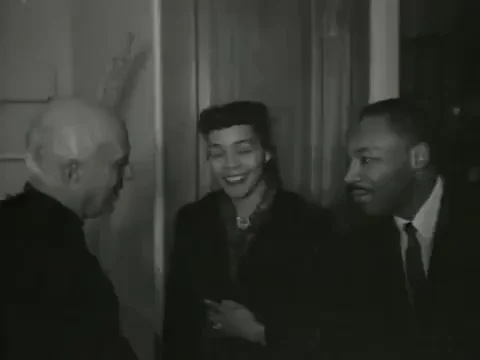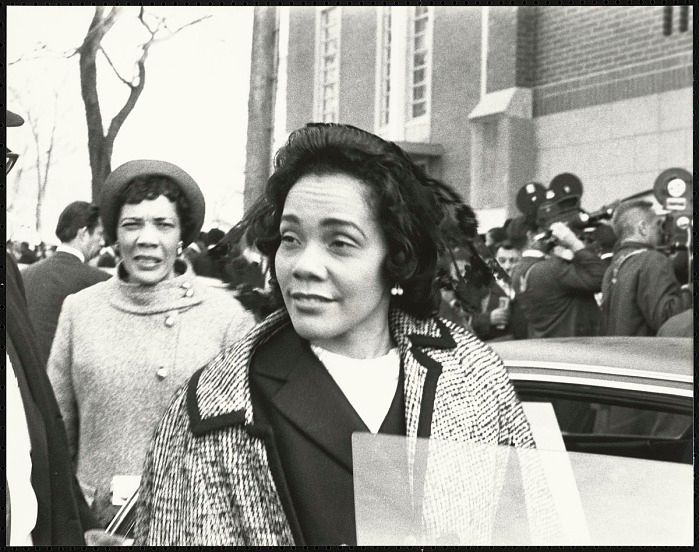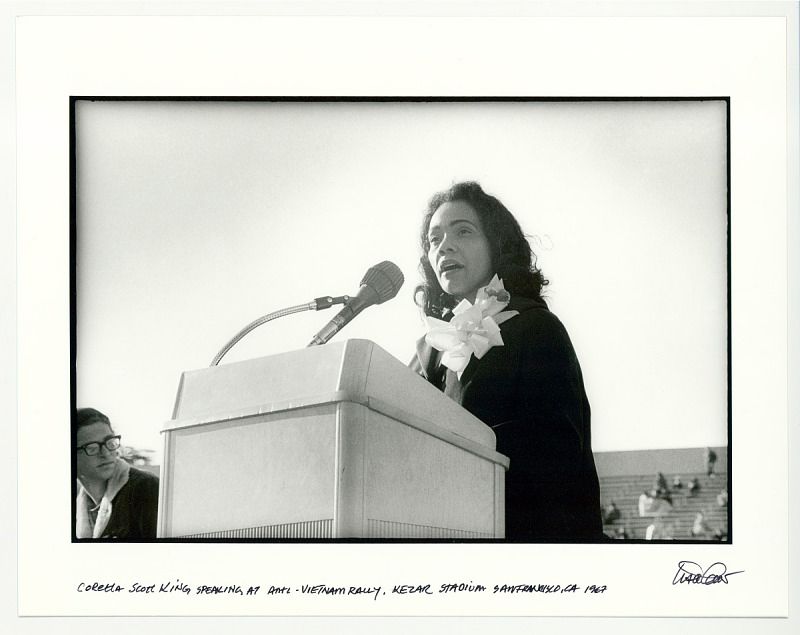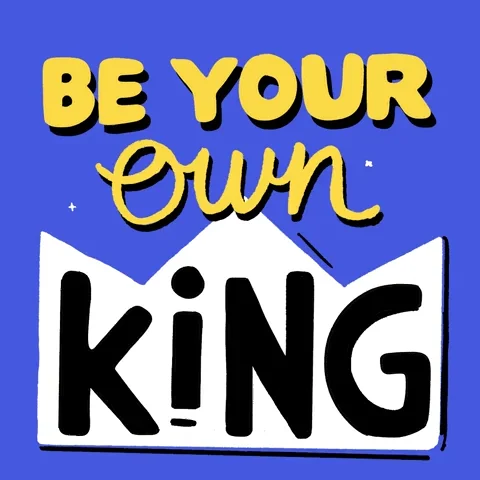
While she is widely known as the wife of the late Rev. Dr. Martin Luther King Jr., the late Coretta Scott King was a powerful figure in her own right and also played a pivotal role in the Civil Rights Movement.
When her husband's life was cut short, she continued the fight for civil rights while also raising the couple's four young children.

She dedicated her life to service even before meeting her husband. Dr. King would admit in an interview that Coretta had educated him when it came to advocacy.
Coretta Scott King's life can teach us 3 important lessons about fighting for causes we believe in.
Be a Visionary
 Credit: National Museum of African American History and Culture
Credit: National Museum of African American History and Culture
Coretta Scott King was a trained singer, who graduated from the New England Conservatory in 1954 with a BA in Music Education. She intended to become a music teacher, but life led her on a different path after she married her husband, Dr. Martin Luther King Jr., in 1953.
After they married, she used her talents to organize concerts that raised money for organizations fighting for civil rights,including the Southern Christian Leadership Conference (SCLC) and the Montgomery Improvement Association (MIA).
The concert for MIA was held on December 5, 1956, the first anniversary of the Montgomery Bus Boycott, and raised $2,000.

Library Documentation Project
In 1967, Coretta Scott King envisioned "preserving the papers of Dr. King." This led to the creation of the Library Documentation Project. The project evolved into the King Library and Archivesin Atlanta, GA, at the King Center.
What started as preserving her husband's legacy has now turned into the largest collection of primary source materials on Dr. King and the American Civil Rights Movement.
Lesson #1: Use your talents to draw awareness to the causes that you believe in.
Be An Advocate
 Credit: Smithsonian
Credit: Smithsonian
After meeting civil rights advocate Bayard Rustin in college, she became a peace activist. She continued her activism after marrying her husband and fully joined the Civil Rights Movement.
Her activism wasn't limited to the Civil Rights Movement. She also championed:
Women's rights
LGBT rights
Healthcare
Nuclear disarmament

In 1969, as the president and founder of the King Center, she "called for nationwide celebrations to support" a bill introduced in 1968 to make her late husband's birthday a federal holiday.
Ten years later, she was joined by President Jimmy Carter in appealing to Congress to pass the bill, but was unsuccessful. However, she didn't give up. With help from singer Stevie Wonder, the bill passed andwas signed into law by President Ronald Reagan in 1983.
Lesson #2: Stand for what you believe in and never give up.
Be a Leader
After the assassination of Dr. King on April 4, 1968, Coretta Scott King established the King Center in June 1968 where she served as the president until 1994. The purpose of the Center was to continue the legacy of Dr. King and the fight for civil rights.
The King Center played an important role in continuing to champion nonviolence after Dr. King's death. Under her leadership, the King Center taught 300,000 South Africans nonviolence techniques to prepare for the nation's first political race that featured multiracial candidates.

Throughout her life, she continued to establish many organizations and coalitions, including:
Black Leadership Forum
National Black Coalition for Voter Participation
Black Leadership Roundtable
She was also the head of the US Delegation of Women for a Meaningful Summit in 1988.
In 1983, she convened the Coalition of Conscience, which comprised over 800 human rights organizations, for the 20th anniversary of the March on Washington.
Lesson #3: In difficult times, rise to the occasion and be the leader you want to see.
Take Action

If you're inspired by Coretta Scott King and want to do more, use these tips to take action:
Your feedback matters to us.
This Byte helped me better understand the topic.
